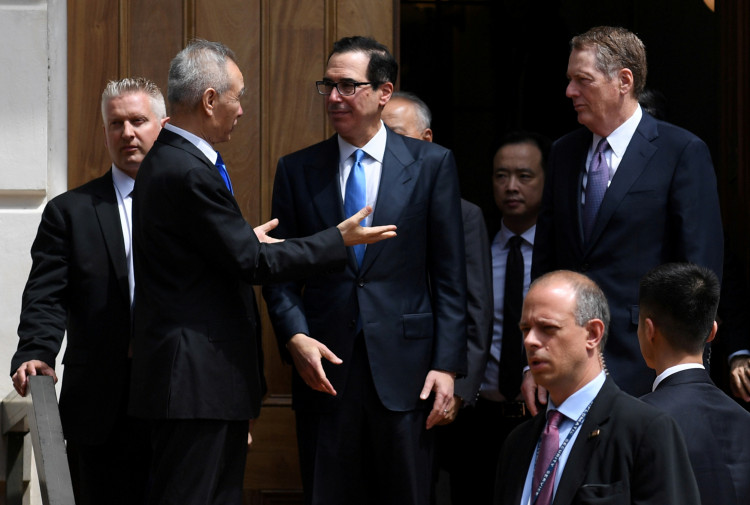U.S President Donald Trump's trade negotiating team is headed to China next week to resume the trade talks that were stalled in May. Sources revealed that Washington officials believe a deal could be inked before 2020.
Three people with knowledge of the matter told CNBC News that American negotiators dropped hints of completely rolling back the tariffs on billions of Chinese goods if Beijing agrees to ink a deal.
However, it may take a couple of months before this happens, which could mean that a deal won't be in sight until the end of 2019.
Multiple outlets reported that the American delegation is expected to hold talks with their Chinese counterparts before the August 1 holiday as the two sides try to strike the long-overdue deal that could put an end to the woes of U.S. and Chinese companies affected by tariffs.
Hopes were held high after Trump said on Monday that he will make "timely" decisions regarding Beijing's request to lift the ban on China's biggest tech company, Huawei. As if in response to Trump's positive remarks, Chinese state media reported on the same day that local companies have made the first step towards purchasing more American farm goods.
State media said Chinese companies have submitted applications to buy U.S. agricultural products. They also filed for tariffs to be lifted for their purchases. Beijing said it will review the filings of interested buyers.
Economists are now more optimistic about a trade deal even if it may take several months more before an official agreement is reached by two of the world's largest economies.
Meanwhile, Chinese stocks led the way for Asian markets to improve on Wednesday morning following reports about the supposed trade talks next week. According to CNN, Shanghai stocks traded higher, with the Shanghai Composite Index rising by 1.1 percent and Hong Kong's Hang Seng also gaining 0.9 percent.
China's new Nasdaq-style tech board, Star Market, also had a positive third day of trading. The board has 25 listed stocks and of those shares, 19 saw significant gains in the early trade.
The Shenzhen composite saw gains of 1.106 percent, and the Shenzhen component advanced by 0.99 percent. In the Asia Pacific, L'Occitane soared by over five percent, and Australia's S&P/ASX 200 rose 0.77 percent.
Not every stock in the Asia Pacific rejoiced, though. South Korea's Kospi dropped 0.91 percent as trade tensions with Japan ensue. LG Display also slipped by 3.81 percent following its Q2 posting of operating losses.
U.S. Trade Representative Robert Lighthizer has yet to confirm if he will join the delegation traveling to Beijing next week.





